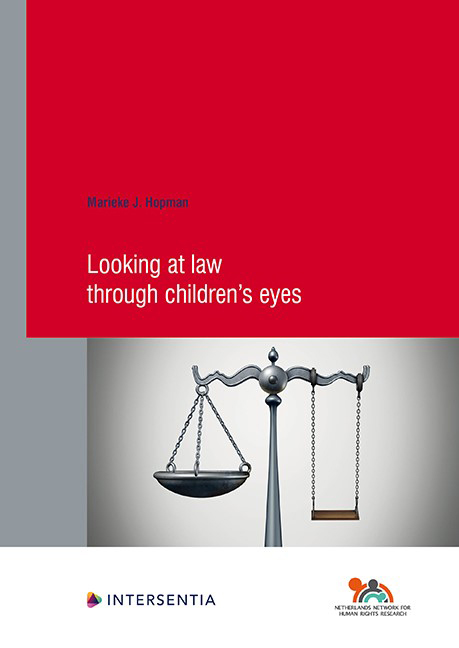PART II - LAW FOR CHILDREN IN PRACTICE: THREE CASE STUDIES
Published online by Cambridge University Press: 25 May 2021
Summary
As indicated in the introduction to part I, while part I presented the theoretical framework and methodology for finding law for children, the second part of this thesis will present three case studies wherein the theory and methodology of the first part will be applied to actual cases, to try to understand the different laws, in different legal orders, involved in the protection/violation of a certain child's right in a specific socio-legal context. The three case studies in this part of the thesis are :
– The child's right to education in the Netherlands (chapter 5)
– The child's right to education in the Central African Republic (CAR) (chapter 6)
– The child's right to nationality in the Turkish Republic of Northern Cyprus (TRNC) (chapter 7)
Each chapter includes an overview of the situation of that particular child's right in that particular socio-legal context, followed by an analysis of the different legal orders and laws found during the case study. Before presenting the first case, I will elaborate on the selection of these cases.
THE ORIGINAL PLAN
According to the original research proposal, the idea was to apply the theory to six different case studies, studying different children's rights articles (derived from the UNCRC) in different social and political contexts, to test the hypothesis that, in order to understand violations of children's rights more, one has to look at law through children's eyes. This understanding of the laws and legal orders surrounding children was hypothesized to create a new understanding of children's rights violations, which could open up (possibilities for) social transformation. To this end, then, the theoretical framework and methodology proposed had to be tested in relation to different children's rights violations, in different cultural, social, and political contexts.
The case studies selected were:
1. The child's right to education (art. 28, 29 CRC) in the Central African Republic and the Netherlands
2. The best interests of the child (art. 3 CRC) in the Turkish Republic of Northern Cyprus (TRNC) and the Netherlands.
3. The right to be protected against sexual exploitation (art. 34, 35 CRC) in the United States, in Massachusetts and in the Netherlands.
- Type
- Chapter
- Information
- Looking at Law through Children's Eyes , pp. 125 - 128Publisher: IntersentiaPrint publication year: 2021

